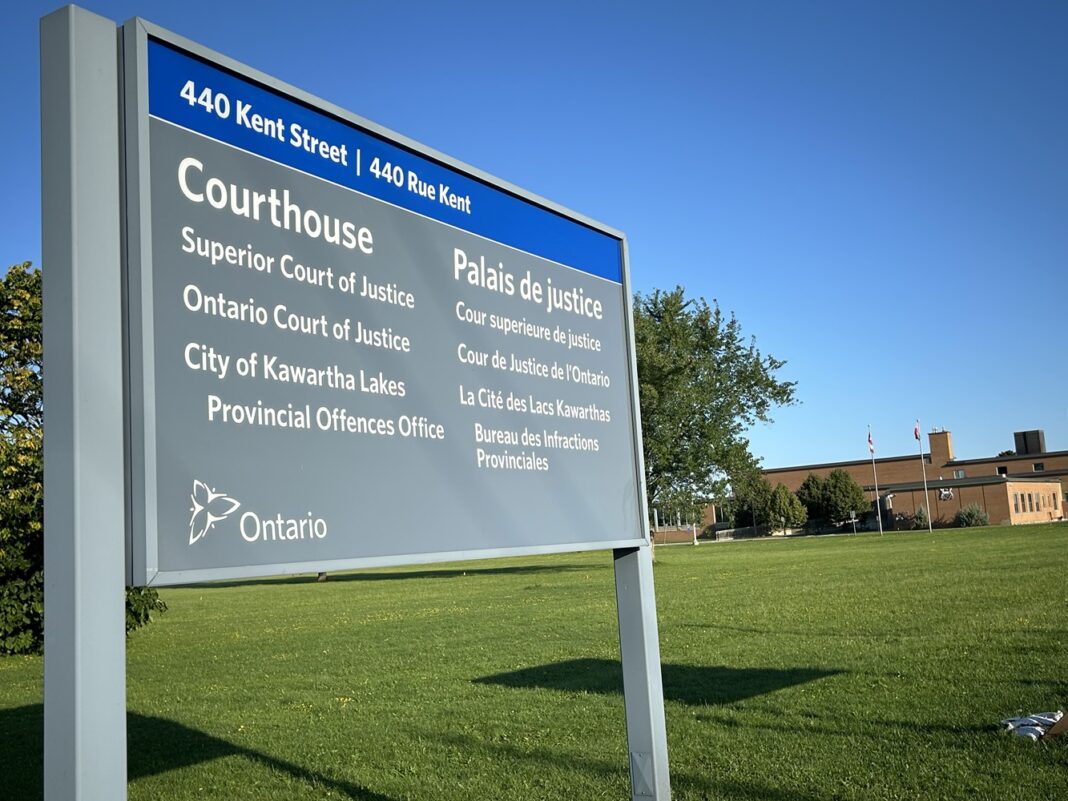Newly-retained defence counsel for convicted Haliburton County sex offender Paul Gregory Watson has asked for a new trial after alleging the Ontario judge who presided over court proceedings last year erred by not considering testimony from three “key” witnesses, including Watson.
Watson was found guilty of sexual assault and unlawfully entering a dwelling following an incident at an elderly neighbour’s house in Algonquin Highlands in February 2021.
At sentencing in November 2023, an Oshawa courtroom heard how Watson entered his neighbour’s home in the early hours of Feb. 17, making several sexual advances. When rebuffed, Watson persisted, exposing himself while expressing his fondness for the victim and touching her over a nightgown, before leaving.
Justice Russell Wood handed down a 90-day jail sentence, which Watson has been serving on weekends, nine months of house arrest and two years’ probation.
The case was back in court Aug. 16, with Toronto-based criminal defence attorney Mindy Caterina appealing last year’s conviction, while Rebecca Griffin, representing the Crown, filed a separate appeal seeking a longer sentence. It was heard by Myrna L. Lack of the Superior Court of Justice.
Caterina said during last year’s trial, Wood rejected evidence provided by Watson and his wife, Michelle, and a character assessment submitted by the man who purchased the property from the elderly neighbour following the incident.
She noted Watson and the elderly neighbour were familiar with each other, with him often completing chores on her property. In 2017, the Watsons stayed with the neighbour for three months while their home was being renovated.
In his evidence, Watson said he was walking his dog late at night when he noticed smoke coming from the victim’s chimney. Caterina said this worried him, since he’d earlier recommended, on a previous visit, that his neighbour not use her fireplace due to a dangerous build-up of creosote – a highly flammable tar-like substance containing toxic chemicals that can be harmful if inhaled.
Caterina said Watson entered the home through a side studio door, leaving his dog in a porch, before proceeding to wake the neighbour. She said the neighbour asked Watson to leave, which Caterina claims Watson did without incident.
“The first reason the trial judge gives for rejecting the appellant’s evidence was that [he] concocted his narrative after the fact in an attempt to mirror the complainant’s testimony, but with an innocent explanation. The Court of Appeal instructs that as an illegal inference,” Caterina said.
“Additionally, [the judge] committed four material misapprehensions of evidence, which bore on his credibility analysis.”
In his reasoning, Wood said, “there were many aspects to [Watson’s] explanation that defy common sense.” The judge thought it “bizarre” Watson would enter the home uninvited in the middle of the night due to a safety concern, only to immediately leave without rectifying the issue after waking the victim.
Caterina cited a 2020 sexual assault case, where a conviction was overturned because the presiding judge was found to have ignored the accused’s constitutional rights when refusing testimony after believing it was structured to meet the allegations faced. She feels this establishes a clear precedent.
Lack seemed to reject that thought, telling Caterina, “he says ‘I don’t believe the guy.’ And fair enough.” From her perspective, Lack felt Wood was within his rights to reject Watson’s version and convict based on the victim’s testimony.
Caterina cast doubt on the victim’s testimony, saying she seemed to have problems with her memory. She cited the victim’s uncertainty over when her fireplace was last serviced, and when phone calls to book the service took place, as reasons to question her evidence.
Crown response
Griffin noted, during the trial, Watson “deflected continuously” and changed parts of his story when pushed by Wood to answer why he felt compelled to enter the house.
The Crown prosecutor felt Caterina’s claims of misapprehension of evidence – surrounding the events leading up to the incident – held little weight.
“The evidence is clear that Watson did not have an open invitation to enter [the victim’s] house, certainly not in the middle of the night. If he was concerned… the more obvious option would be to return home and call [the victim] on the phone. If he felt it was a more urgent emergency, why enter through a studio door in such a secretive way? Why not go directly to the front door, or window, loudly?” Griffin said.
The prosecutor didn’t have time to address her sentencing appeal.
With the day drawing to a close, Lack said another hearing would be required to hear the Crown’s appeal.
“I’ve been a judge of this court for 26 years and I have never had a sentence appeal yet, so I really want to hear this,” Lack said, noting a decision on both appeals will be made after. Watson is due to complete his sentence Dec. 17.





